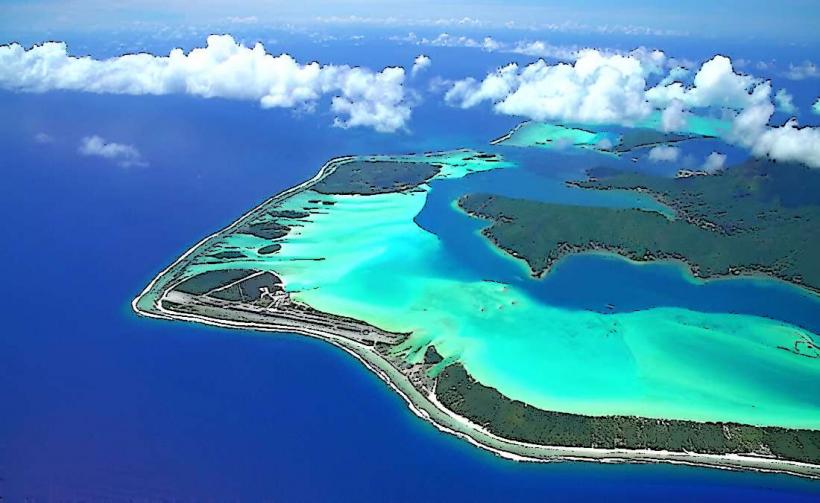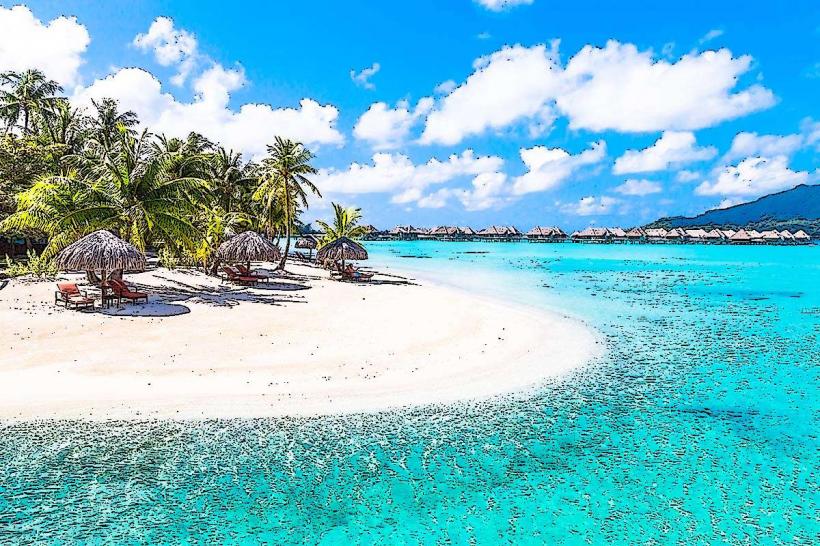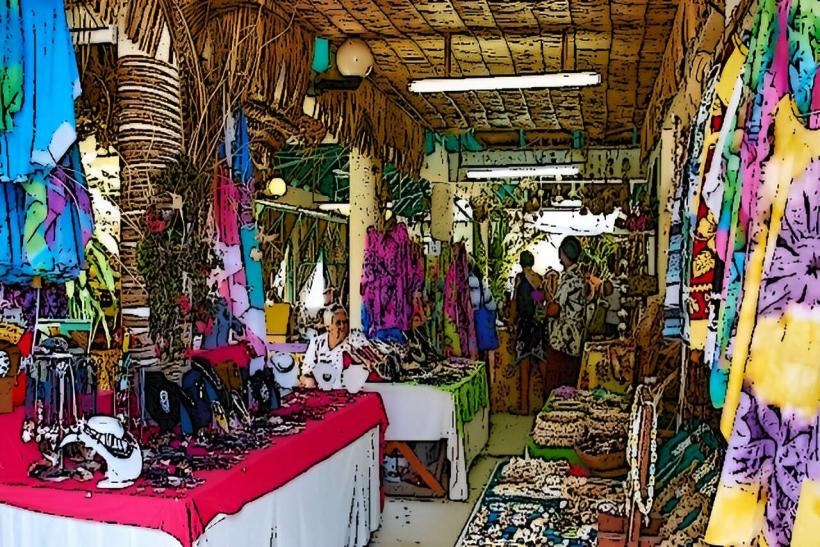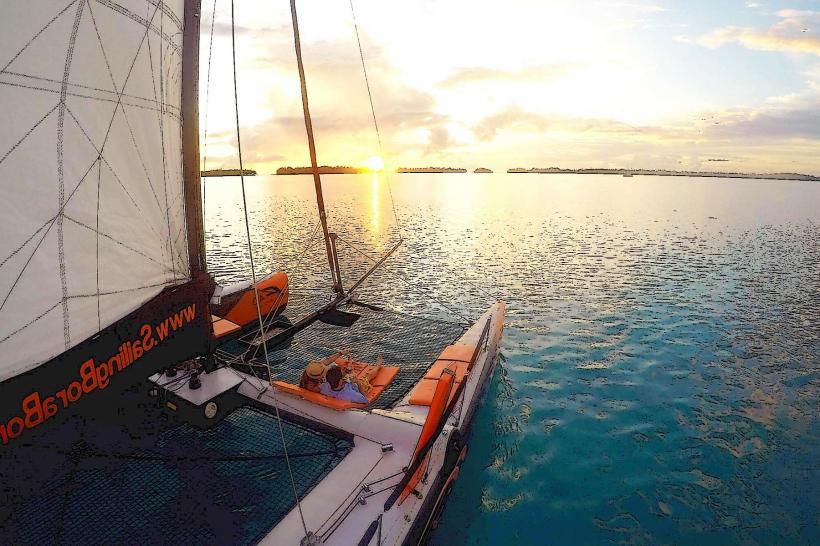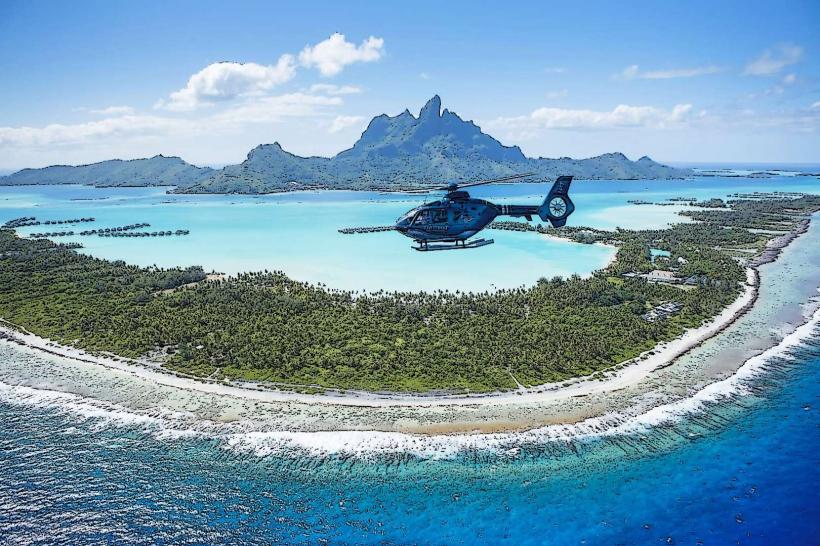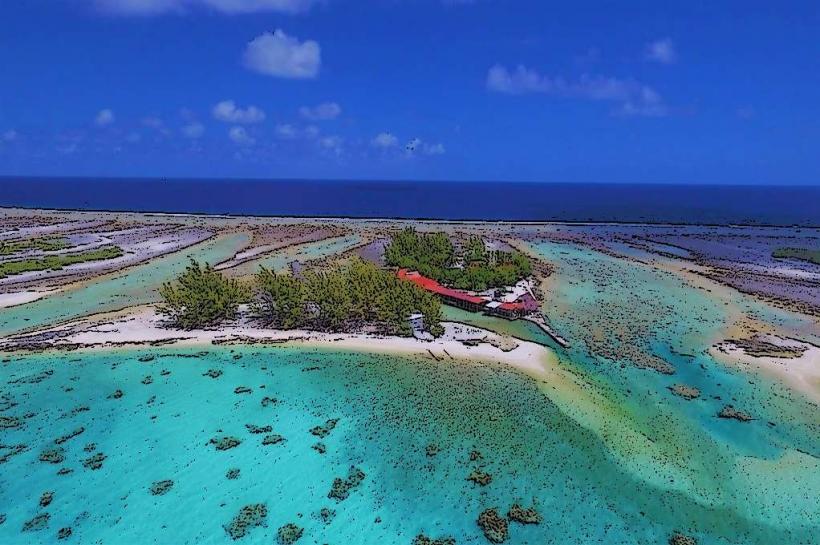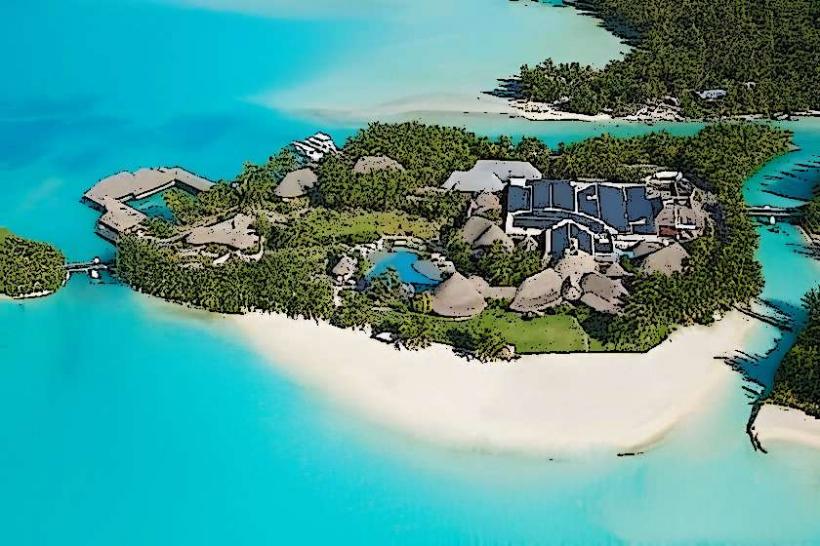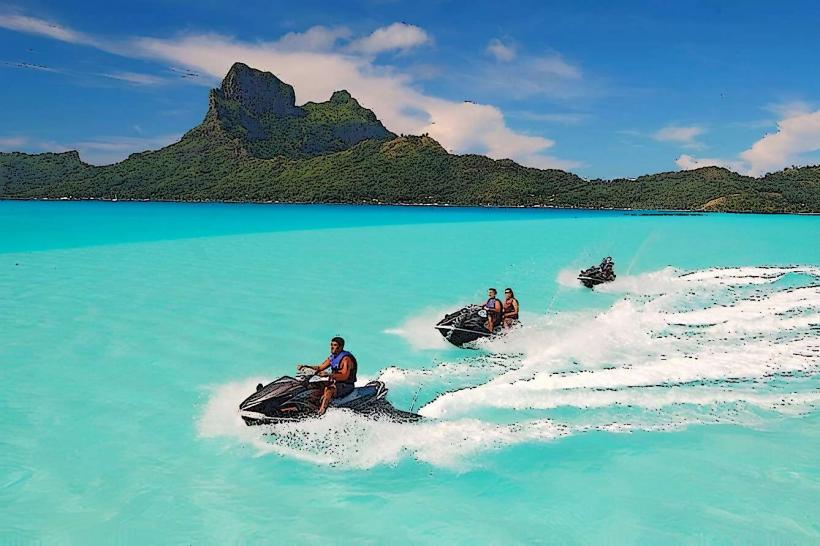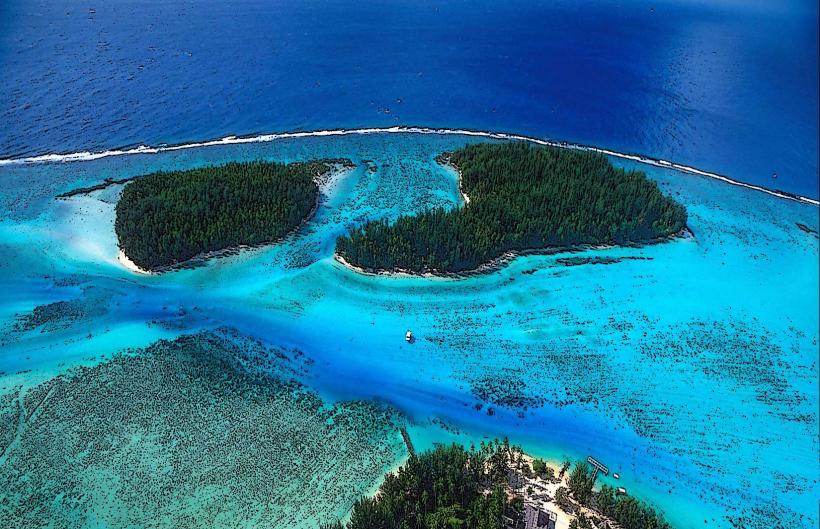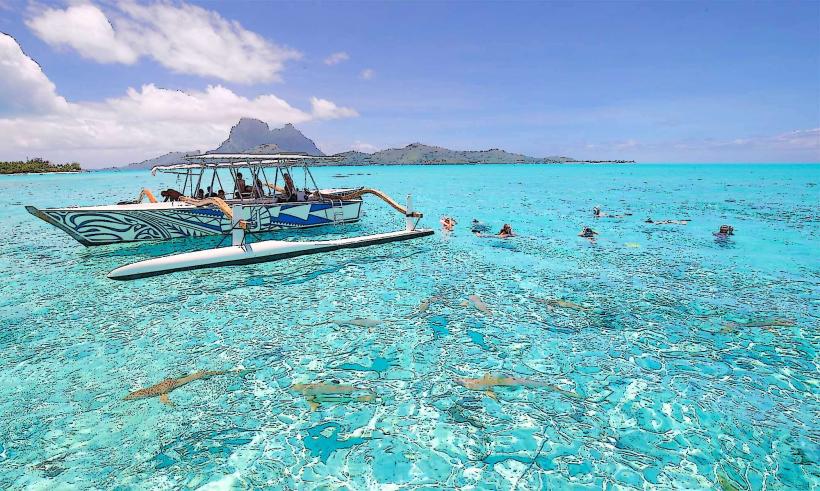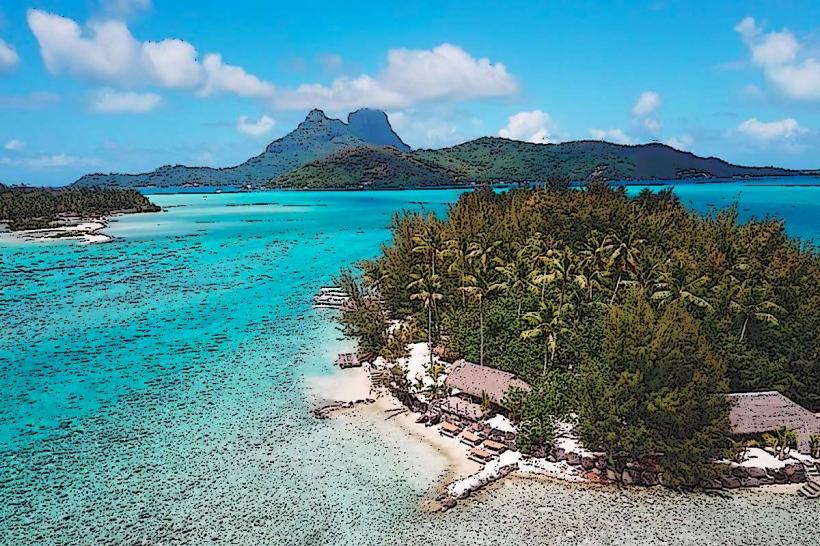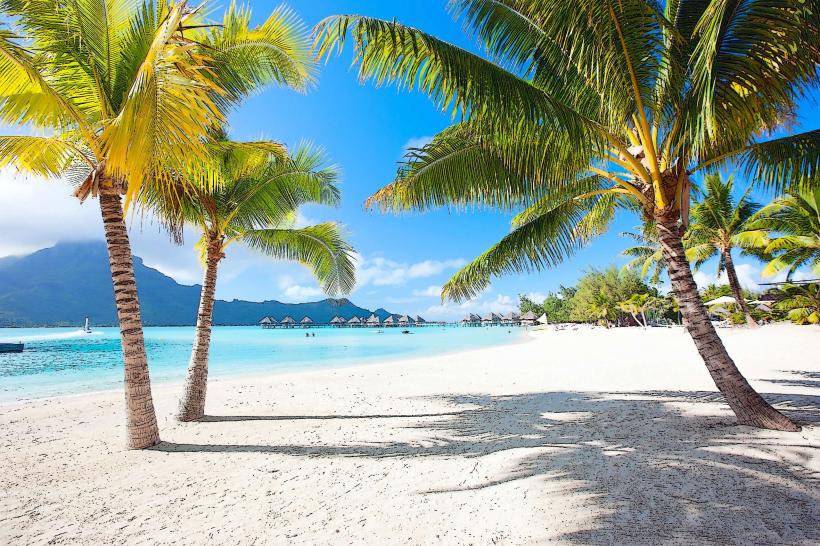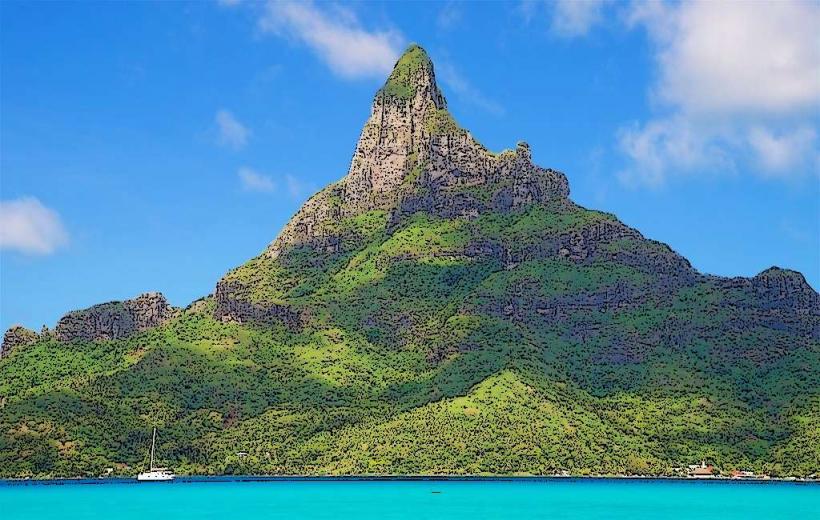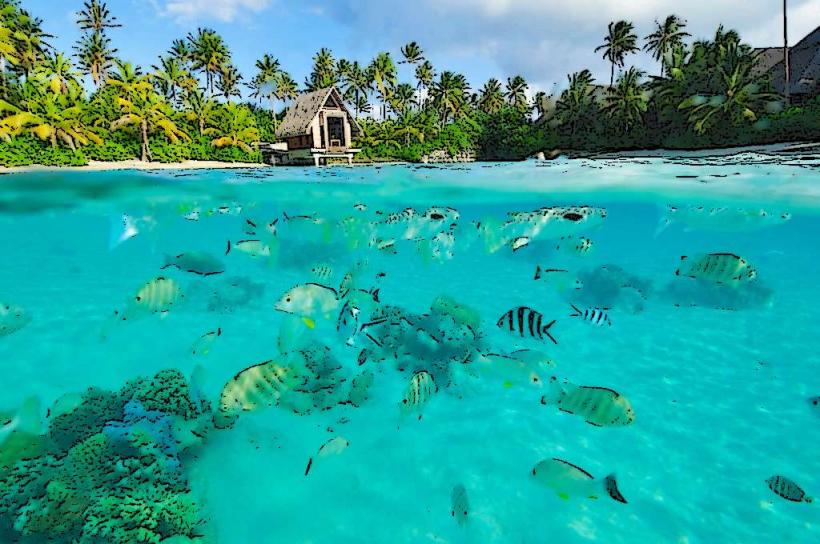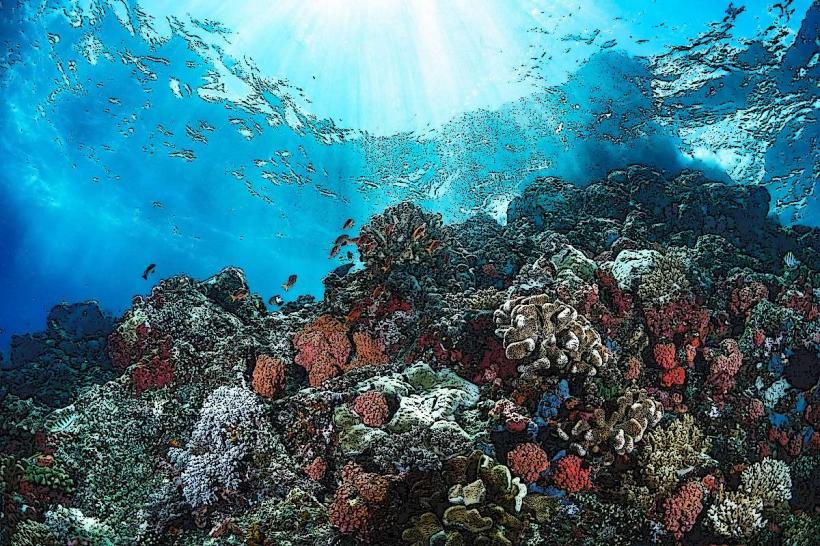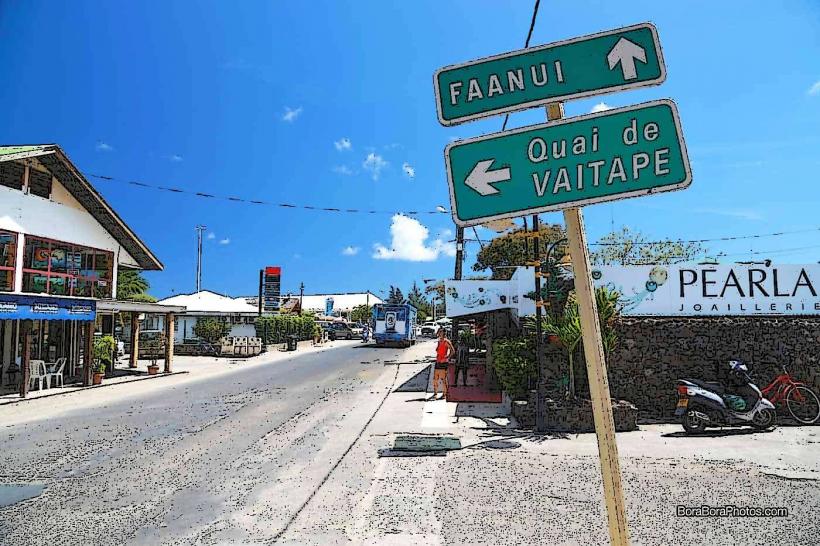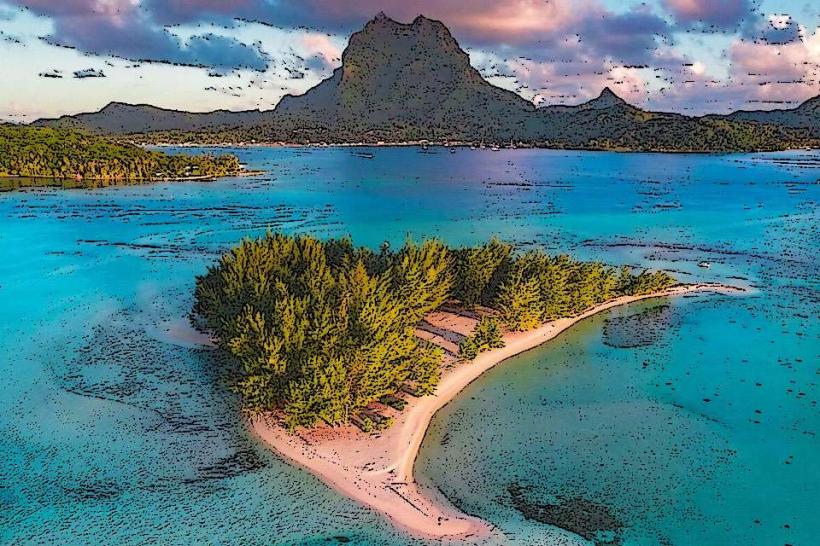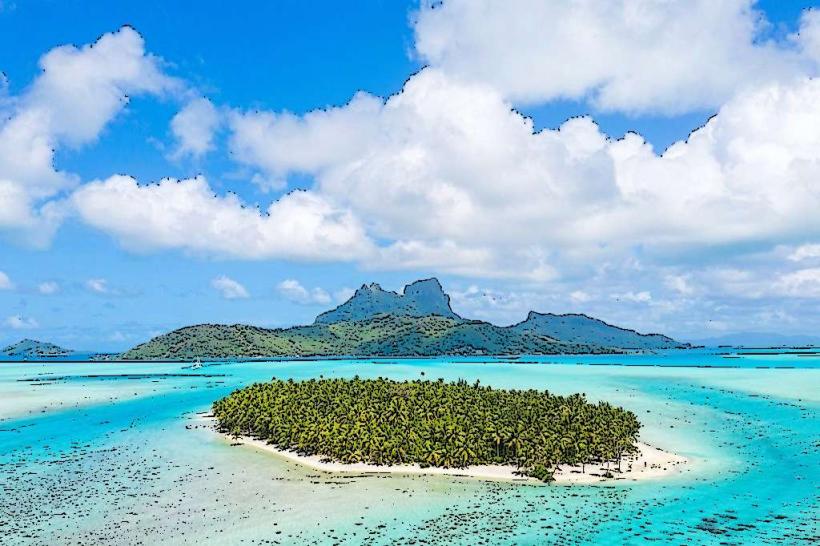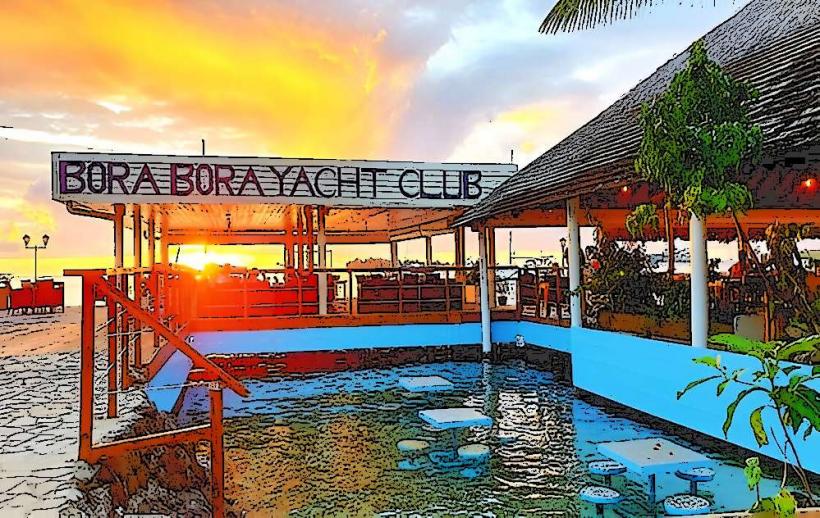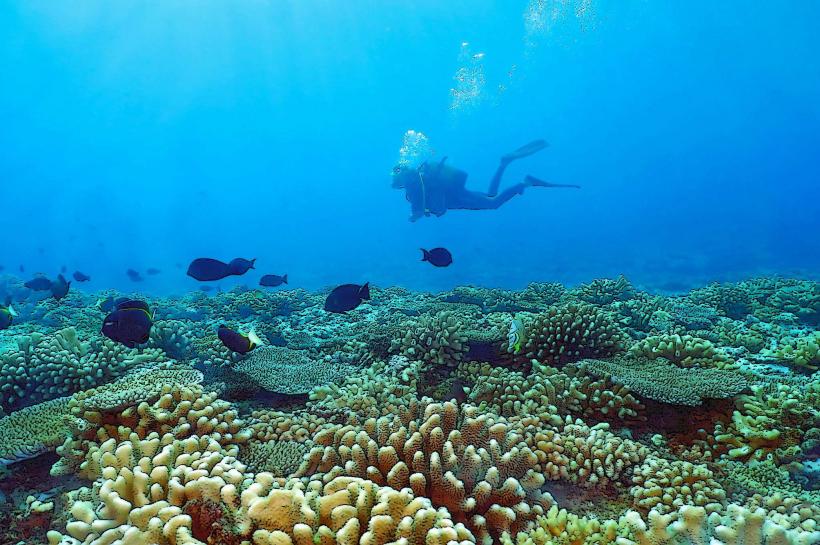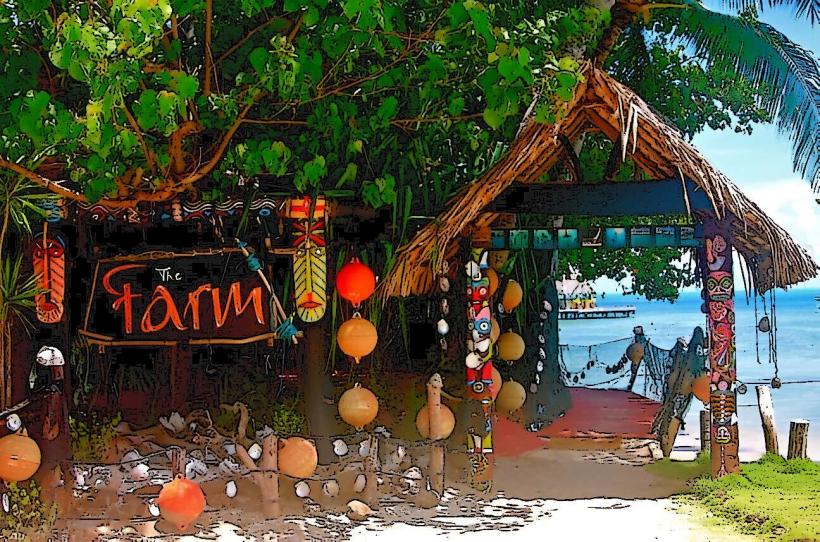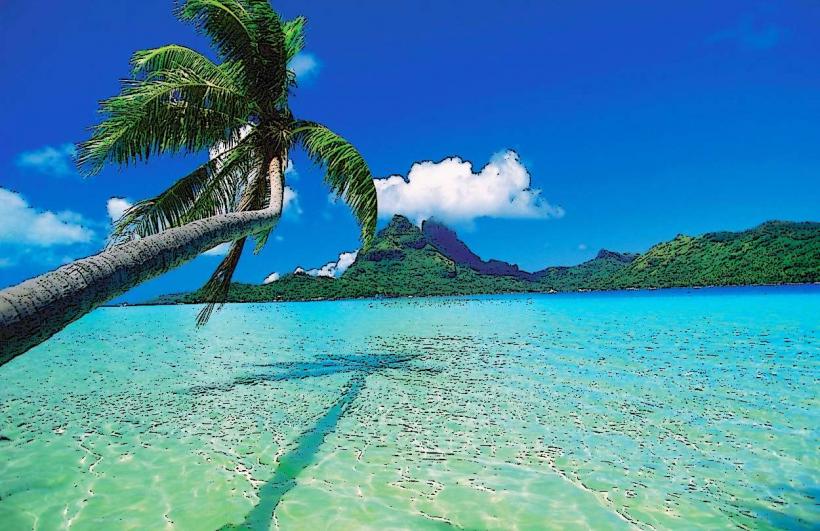Information
Landmark: Bora Bora Coral ReefCity: Bora Bora
Country: French Polynesia
Continent: Australia
Bora Bora Coral Reef, Bora Bora, French Polynesia, Australia
The Bora Bora Coral Reef is an extensive barrier reef system encircling the island of Bora Bora in French Polynesia.
This marine ecosystem is a significant component of the island's geography and biodiversity.
Visual Characteristics
The reef structure is primarily composed of hard corals, exhibiting a range of colors from pale white to deep browns and greens. Submerged sections appear as undulating formations beneath the turquoise lagoon waters. The lagoon itself varies in depth, with shallower areas near the shore and deeper channels. The outer edge of the reef is exposed to the open Pacific Ocean.
Location & Access Logistics
The reef surrounds the main island of Bora Bora. Access is primarily via boat tours departing from the main island's resorts and the town of Vaitape. Vaitape is accessible by ferry from the airport island of Motu Mute (Faa'a International Airport code: PPT, then domestic flight to Bora Bora Airport code: BOB). Boat transfer times to reef access points vary from 15 to 45 minutes depending on the departure location and specific reef section. No direct road access to the reef itself exists.
Historical & Ecological Origin
The Bora Bora Coral Reef is a classic example of a fringing reef that has evolved into a barrier reef system around a volcanic island. Its formation is a result of coral polyps colonizing the submerged slopes of the volcanic island over geological timescales. The current structure is a product of ongoing biological growth and sea-level changes.
Key Highlights & Activities
Snorkeling and scuba diving are the primary activities. Specific sites include the Coral Garden for shallow-water observation of reef fish and anemones, and the outer reef drop-off for deeper dives. Guided boat tours often include stops for swimming with reef sharks and stingrays in designated lagoon areas. Kayaking and paddleboarding are possible within the calmer lagoon sections.
Infrastructure & Amenities
Limited infrastructure exists directly on the reef. Most amenities are located on nearby motus (islets) or the main island. Restrooms and food vendors are typically found at resort-based departure points or on tour boats. Cell phone signal (4G/5G) is generally available on the main island and in resort areas, but can be intermittent on the water.
Best Time to Visit
The best time for clear water visibility is during the dry season, from May to October. The water temperature remains consistent year-round, averaging 26-28°C (79-82°F). For photography, early morning and late afternoon offer softer lighting conditions. High tide is generally preferred for accessing shallower snorkeling spots.
Facts & Legends
Local lore suggests that the lagoon's vibrant colors are a reflection of the gods' paint palette. Scientifically, the color is due to the depth of the water and the presence of fine white sand and coral particles. A specific tip for visitors is to observe the reef's ecosystem during different tidal phases, as fish behavior and accessibility to certain areas change significantly.
Nearby Landmarks
- Mount Otemanu (2.5km Northwest)
- Vaitape Town (3.0km West)
- Bora Bora Lagoonarium (4.0km Southwest)
- Matira Beach (4.5km South)
- Motu Mute Airport (5.0km North)


